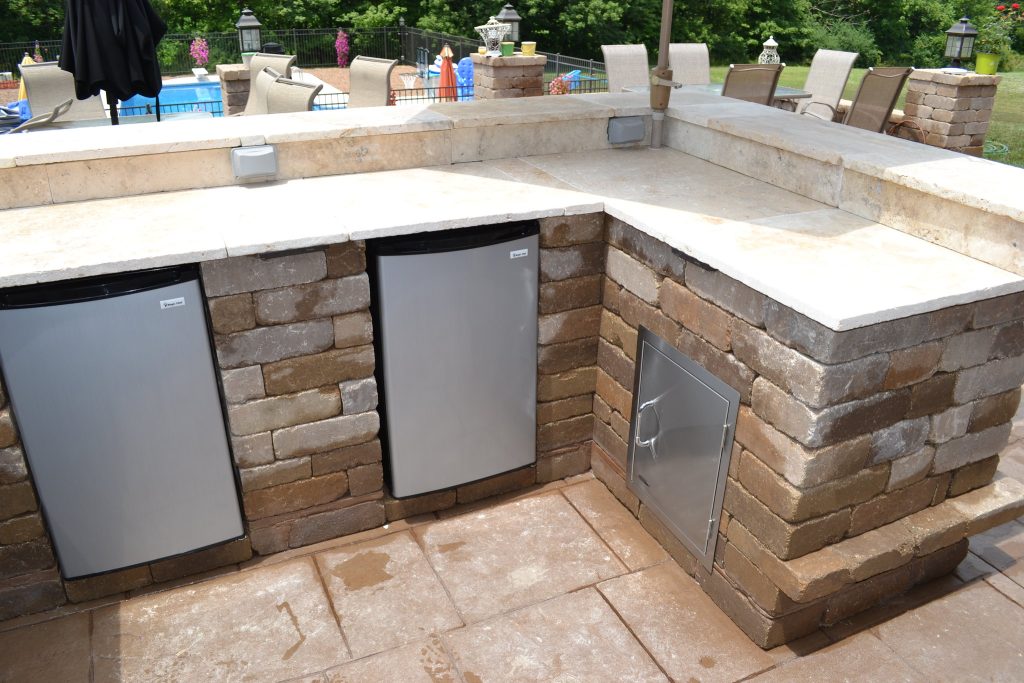Lavallette officials this week introduced an ordinance that would govern the construction of outdoor kitchens in the borough, a growing trend as homes on the island become more luxurious – and larger – leading to confusion as to what the town’s actual policy is on the amenity.
Lavallette’s zoning code is essentially silent on the matter, which has sent applications for outdoor kitchens to the planning board, complicating matters for residents wishing to include them in new homes. The ordinance would set forth regulations that take into account the most popular heights and specifications of outdoor kitchens on the marketplace, officials said.
“We’re trying to make them legal, not make them illegal,” Councilwoman Joanne Filippone emphasized. “We just want some restrictions so they don’t get out of hand.”
The current ordinance, she said, allows an outdoor kitchen only as “an extension of the home,” which has been interpreted to mean it must be physically attached to the structure.
“There is nothing else is the code that makes cooking facilities legal, but there are many around town – some with permits granted, many not,” Filippone said.
The council sought to make the ordinance liberal in nature to allow residents to design their homes as freely as possible, officials said. The height of an outdoor kitchen counter and stove, for example, is often limited by municipalities to 36-inches off the ground, however many popular models are 42-inches high, which is reflected in the ordinance.
Outdoor cooking facilities would require an inspection by the borough’s building department before being used, cannot be covered by a roof and must be at least 10-feet from any other building on the lot. Waterfront homes must have a 20-foot rear setback, and they cannot be enclosed on more than two sides. All outdoor kitchens would be required to comply with FEMA flood zone requirements.
Outdoor cooking facilities are defined as permanently-installed grills, ovens, pizza ovens, sinks, refrigerators and kegerators, among similar items. The ordinance would not apply to free-standing grills.
Borough Attorney William Burns said there is “substantial building” demand for outdoor kitchens, and the current code was indeed insufficient to guide home-builders and designers on how to legally move forward. The council decided to send the matter to the planning board for a review and comments, however the governing body plans to adopt the final ordinance at its March 7 council meeting. The council had originally been set to consider the final adoption at a later date.
“I know there are several applications that call for these to be constructed, and they would have to be denied because they’re not yet legal,” said Filippone, who requested the matter be expedited.

Advertisement

Ortley Beach & North Beaches
Landmark Ortley Beach Breakfast Spot Looks to Expand

Ortley Beach & North Beaches
‘Temporary’ 70-Foot Cell Tower on Route 35 in Ocean Beach OK’d to Return

Seaside Heights & Seaside Park
Beloved South Seaside Park Restaurant Will Remain Open As Developer Seeks to Demolish Block

Seaside Heights & Seaside Park
In Seaside Heights, A $50M Flagship Building Rises Over the Boulevard in a Famed Location

Police, Fire & Courts
Ocean County Sheriff Establishes Drone Command Center in Seaside Heights Amid New Video







